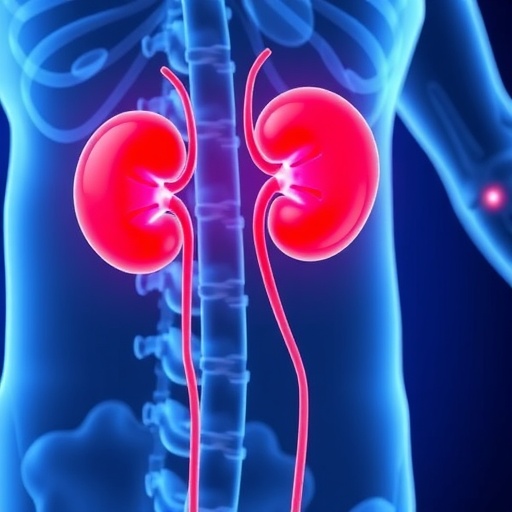In a significant advancement for the treatment of IgA nephropathy (IgAN), recent findings from a 100-week Phase 1/2 clinical trial have highlighted the promising long-term efficacy and safety profile of zigakibart, an investigational monoclonal antibody targeting the APRIL pathway. The data, unveiled at the 62nd European Renal Association (ERA) Congress in Vienna, Austria, underscore the potential of this innovative biologic therapy to alter the natural course of IgAN, a notoriously progressive glomerular disease that often culminates in kidney failure.
IgA nephropathy, characterized by the deposition of abnormal immunoglobulin A (IgA) complexes in the glomeruli, stands as the most prevalent form of primary glomerulonephritis worldwide. This condition triggers chronic inflammation and damage within the kidney’s filtering units, leading to proteinuria and gradual loss of renal function. Despite being a leading cause of chronic kidney disease, IgAN remains underdiagnosed until patients present with advanced renal impairment, frequently making therapeutic intervention challenging and highlighting the critical need for disease-modifying treatments.
Zigakibart operates through selective inhibition of APRIL (A proliferation-inducing ligand), a cytokine integral to B cell activation and survival that drives the production of pathogenic galactose-deficient IgA1 (Gd-IgA1), a central factor implicated in IgAN pathogenesis. By interrupting this pathway, zigakibart aims to reduce the synthesis of nephritogenic IgA1, thereby halting or even reversing ongoing immune-mediated kidney injury.
The ADU-CL-19 trial enrolled 40 adult participants diagnosed with biopsy-confirmed IgAN who exhibited persistent proteinuria despite receiving the standard of care, including maximally tolerated renin-angiotensin system inhibitors (RASi). Patients were administered zigakibart biweekly, either through intravenous infusions or subcutaneous injections, for a duration extending to 100 weeks. This regimen sought to evaluate the antibody’s ability to induce remission of proteinuria and preservation of kidney function over an extended treatment period.
Remarkably, data from week 100 demonstrated a 60% reduction in proteinuria compared to baseline levels, signifying substantial attenuation of the pathological leakage of proteins through the glomerular filtration barrier. Notably, over half of the patients achieved proteinuria values below 500 mg per 24 hours, with nearly one-third of subjects reaching even deeper remission below 300 mg per 24 hours—benchmarks rarely attained with current therapeutic options.
Crucially, these proteinuria improvements were coupled with stable estimated glomerular filtration rate (eGFR) across all patient subgroups, an encouraging indicator that zigakibart not only ameliorates functional impairment but may also prevent progressive nephron loss. The sustained eGFR stabilization, even among patients with varying degrees of proteinuria response, strengthens the hypothesis that APRIL pathway blockade confers long-lasting renal protection beyond symptomatic control.
Serological analyses substantiated the mechanistic rationale behind zigakibart’s efficacy. Patients exhibited pronounced decreases in circulating immunoglobulins, including a 74% reduction in both total IgA and the pathogenic Gd-IgA1 subtype. This selective diminishment aligns with APRIL’s role in B cell maturation and underscores the antibody’s capacity to suppress production of disease-driving immune complexes.
From a safety standpoint, zigakibart was well tolerated throughout the study timeline. Most reported adverse events were mild to moderate in severity, with infections representing the most frequent but manageable side effect. Importantly, no treatment-related serious infections or discontinuations were observed, even amidst a backdrop of elevated COVID-19 prevalence in the regions where the trial was conducted. This tolerability profile is especially relevant given the immunomodulatory action of the drug.
These findings represent the longest duration of kidney function stabilization reported for any anti-APRIL agent in patients with IgAN, positioning zigakibart as a leading candidate for long-term disease management. Professor Jonathan Barratt, the lead investigator, emphasized that these data bolster confidence in zigakibart’s potential to serve as a cornerstone therapy that not only mitigates renal injury but also fundamentally modifies the disease trajectory.
Looking ahead, the ongoing global Phase 3 BEYOND study aims to extend and validate these outcomes in a larger, more diverse patient population. With primary endpoints focused on proteinuria reduction at 40 weeks and kidney function preservation through 104 weeks, this trial will provide critical insights into zigakibart’s utility in routine clinical practice. An open-label extension study, BEYONDx, is concurrently underway to assess sustained treatment effects and long-term safety.
The introduction of zigakibart signals a paradigm shift in IgAN therapeutics, setting the stage for targeted immunological interventions that address the underlying pathomechanisms rather than merely controlling symptoms. As the medical community eagerly anticipates further Phase 3 data, zigakibart offers a beacon of hope for the millions affected by this stealthy but devastating kidney disease.
Subject of Research:
IgA nephropathy (IgAN) treatment and long-term efficacy of anti-APRIL monoclonal antibody, zigakibart.
Article Title:
Long-term Phase 1/2 Study Demonstrates Sustained Efficacy and Safety of Zigakibart in IgA Nephropathy.
News Publication Date:
5 June 2025
Web References:
http://www.era-online.org
References:
- Barratt J., Lee E.Y., Kim S.G., et al. (2025). Sustained Long-Term Efficacy and Safety of Zigakibart Over 100 Weeks in Patients with IgA Nephropathy. Presented at ERA Congress; 5 June 2025; Vienna, Austria.
- Caster, D.J., King, L.S., Rovin, B.H., et al. (2024). The treatment of primary IgA nephropathy: Change, change, change. American Journal of Kidney Diseases, 83(2), 229–240.
- Pitcher, D., Braddon, F., Hendry, B., et al. (2023). Long-Term Outcomes in IgA Nephropathy. Clinical journal of the American Society of Nephrology, 18(6), 727–738.
- Myette J.R., Kano, T., Suzuki, H. et al. (2019). A Proliferation-Inducing Ligand (APRIL) targeted antibody is a safe and effective treatment of murine IgA nephropathy. Kidney International, 96(1):104-116.
- Mathur M., Barratt J., Chacko, B., et al. (2024). A Phase 2 Trial of Sibeprenlimab in Patients with IgA Nephropathy. New England Journal of Medicine, 390:20-31.
Keywords:
IgA nephropathy, zigakibart, anti-APRIL antibody, proteinuria remission, kidney function stabilization, glomerular disease, monoclonal antibody therapy, disease-modifying treatment, clinical trial, immunoglobulin A1, APRIL pathway, renal medicine




